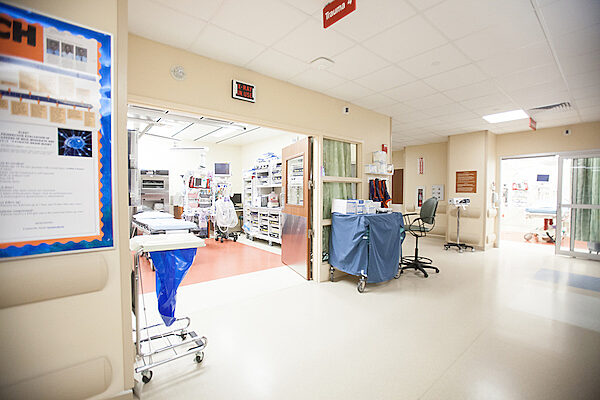UF Health researchers learn more about which patients visit the ER most often

More than 18,000 family medicine patients visited the University of Florida Health Shands emergency rooms from 2015 to 2017. A new study sheds light on the most frequent users: 943 patients who had six or more visits a year.
Knowing who uses ERs the most is an important first step in making emergency care more efficient and redirecting patients who have other options, said Peter J. Carek, M.D., a co-author of the study and chair of the UF College of Medicine’s department of community health and family medicine. Frequent ER users constitute 4% to 9% of all patients, but they account for 21% to 28% of all ER visits.
“If the aim is to help decrease the use of emergency rooms for non-emergent problems, one way to do that is to look at the characteristics of ER patients,” Carek said. “Studies like this help us determine when there are opportunities to provide more appropriate care environments for patients.”
It’s also a potential way to help contain health care costs. Emergency rooms have burgeoning patient numbers and can be one of the most expensive ways to provide treatment. A 2017 study by University of Maryland medical researchers found that nearly half of all U.S. medical care between 1996 and 2010 was delivered in ERs. Over that time, emergency care visits nationwide increased by nearly 44%.
Over the two-year period studied at UF Health Shands, the most frequent users were typically women, African-American and residents of east Gainesville. They were likely to be single and have Medicaid or Medicare coverage. Nearly two-thirds of patients, 65%, had a psychiatric issue, but just 22% had been diagnosed with substance use, the researchers found. The findings were published recently in the Journal of the American Board of Family Medicine.
The UF Health research also revealed when patients were most likely to use ERs — typically between 11 a.m. and 7 p.m. That suggests that patients who can’t get in to see their primary care physicians right away might instead go to an ER, Carek said. One solution to help that would be having extended hours or more late-day appointments at primary care clinics, he said.
“If you have other options available to patients so they don’t have to use the ER, that’s what you would like to do,” Carek said.
UF medical student Stacey Kirkpatrick was the study’s lead author. Understanding patient behaviors and how that ultimately affects ER use can help determine if health care resources are being used efficiently, she said. Patients who have depression or anxiety may not do particularly well managing another condition such as diabetes, resulting in an ER visit.
While the overall number of frequent ER users was virtually unchanged for three years, Kirkpatrick and Carek noted they found consistent demographic and medical characteristics among those patients. That underscores the need to target certain populations rather than individuals when trying to reduce frequent ER use, they said.
Kirkpatrick said the findings raise the possibility of practical solutions aimed at reducing frequent ER use. For example, patients could be encouraged to call their physician or another health care provider before going to the ER.
“There could be an intervention to help some patients decide when going to the ER was necessary or whether their primary care doctor or an urgent care center might be a good alternative,” she said.
About the researcher: Peter J. Carek, M.D., is the C. Sue and Louis C. Murray, M.D., professor of family medicine and chair of the UF College of Medicine’s department of community health and family medicine.
About the author
